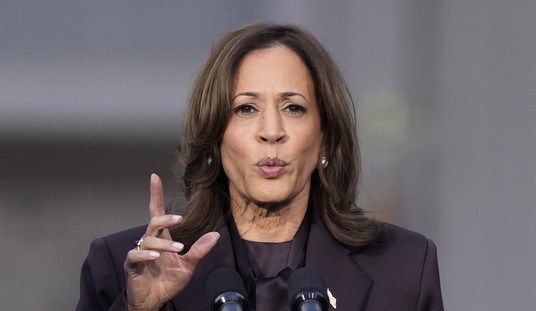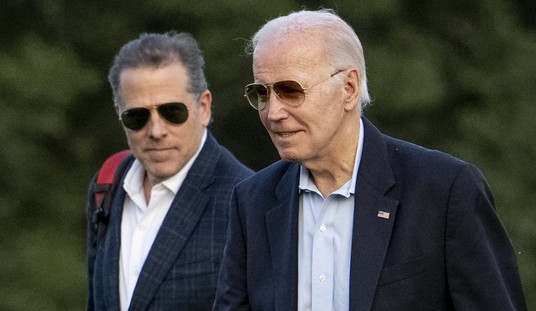
Every day since it was first exposed to the cleansing rays of the sun, the dossier compiled by Fusion GPS subcontractor and former British spy, Christopher Steele, has grown flimsier and flimsier. Even though the FBI used this document to kick off a counterintelligence investigation and to support a number of FISA warrant applications on former Trump campaign associate Carter Page, the underlying problem of the dossier is not only has it not been verified but that it is actually impossible to verify.
Last week the Wall Street Journal ran a must-read titled The Steele Dossier Fits the Kremlin Playbook. I’d love to post the whole thing but Fair Use compels me to stop with this.
When the “Steele dossier” was first published a year ago, it looked like a bombshell. The document, drawn up by the British ex-spy Christopher Steele, contained salacious allegations against President Trump and suggested that Russia had helped him win the 2016 election. No one has been able to corroborate its charges, but Democrats continue to see the dossier as a road map for impeaching Mr. Trump. Republicans, on the other hand, point out that it was created as opposition research, leading them to see it as an elaborate partisan ploy.
There is a third possibility, namely that the dossier was part of a Russian espionage disinformation plot targeting both parties and America’s political process. This is what seems most likely to me, having spent much of my 30-year government career, including with the CIA, observing Soviet and then Russian intelligence operations. If there is one thing I have learned, it’s that Vladimir Putin continues in the Soviet tradition of using disinformation and espionage as foreign-policy tools.
There are three reasons the Kremlin would have detected Mr. Steele’s information gathering and seen an opportunity to intervene. First, Mr. Steele did not travel to Russia to acquire his information and instead relied on intermediaries. That is a weak link, since Russia’s internal police service, the FSB, devotes significant technical and human resources to blanket surveillance of Western private citizens and government officials, with a particular focus on uncovering their Russian contacts.
Second, Mr. Steele was an especially likely target for such surveillance given that he had retired from MI-6, the British spy agency, after serving in Moscow. Russians are fond of saying that there is no such thing as a “former” intelligence officer. The FSB would have had its eye on him.
Third, the Kremlin successfully hacked into the Democratic National Committee. Emails there could have tipped it off that the Clinton campaign was collecting information on Mr. Trump’s dealings in Russia.
If the FSB did discover that Mr. Steele was poking around for information, it hardly could have resisted using the gravitas of a retired MI-6 agent to plant false information. After hacking the DNC and senior Democratic officials, Russian intelligence chose to pass the information to WikiLeaks, most likely to capitalize on that group’s “self-proclaimed reputation for authenticity,” according to a 2017 report from the U.S. Office of the Director of National Intelligence. Simultaneously the Kremlin was conducting influence operations on Facebook and other social-media sites.
The author, Daniel Hoffman, a retired chief of station with the Central Intelligence Agency who served in the former Soviet Union, brings a special kind of expertise to the discussion. I’m still not 100% convinced that there was a hack of the DNC rather than the emails being pilfered by penetrating the system from the inside because no law enforcement agency has ever carried out a forensic analysis of the servers. The analysis was done by a vendor, hired by the DNC, using the same lawyer who hired Fusion GPS, and the head of the vendor company is politically active on behalf of Ukraine. None of that screams “trust the analysis!” But putting that piece aside, the odds of people asking questions about an American presidential candidate of senior Russian officials had to be noticed by the FSB.
The other night I went through the dossier and compiled the list of sources used by Steele:
Source A: senior Russian Foreign Ministry official
Source B: former top-level Russian intel officer still active in the Kremlin.
Source C: senior Russian financial official.
Source D: close associate of Trump who managed his trips to Russia
Source E: seems to be someone in the Trump organization
Source F: Female staffer at Moscow Ritz Carlton
Source G: senior Kremlin official
Former senior intelligence officer
Senior Russian government figure
Russian IT specialist
IT operator inside Russian State Owned Enterprise
FSB cyber operative
Source E: Ethnic Russian close associate of Trump.
Russian source close to Rosneft President Igor Sechin.
Official close to Presidential Administration Head S. Ivanov.
Russian émigré figure close to Trump campaign team
Two well-placed and established Kremlin sources
Source close to Ivanov
Source close to Dimitri Medvedev
Close colleague of Ivanov
Kremlin official involved in US relations
Ethnic associate of Trump
Friend of Kremlin insider
Well-placed Russian figure
Compatriot of senior member of Russian Presidential Administration
Compatriot of top-level Russian government official
Compatriot of two well-placed sources, one business/political elite and one in services/tourism
Compatriot of senior Russian leadership figure and Foreign Ministry official
Compatriot of Igor Sechin
Keep in mind that Steele did not talk to any of these people so his credibility, good or bad, is not useful in evaluating the claims. The best you can say is that Steele is truthfully reporting what he was told and that presumption is tenuous based on Steele’s known statements of antipathy towards Trump. Steele deals with emissaries, paid emissaries to be exact, and they, in turn, are reporting back from conversations they allegedly had with people in Russia. In many cases, the sources quoted has no personal knowledge of events but is reporting what someone else told him (i.e., Russian source close to Rosneft President Igor Sechin). We have no way of knowing the credibility of either the emissaries or the sources. In no case do we know the sources actually exist. In many cases, we don’t know that the sources relied upon are real. Telling Steele about a conversation you never had, and getting paid for it, beats the living hell out of ending up in a Lubyanka basement cell.
We don’t know who the sources are but what we do know is that the FSB would probably call this activity “espionage.” The question then becomes did the emissary disclose what they are doing to the source, to immunize themselves from prosecution, and therefore the source and maybe the source’s source knows that this is part of research on Donald Trump by someone who doesn’t want him elected.
If what the author says is true, that Steele was probably under some degree of surveillance just because he was a former senior British intelligence official and that is what the Russians do, then the odds of this being carefully crafted disinformation goes sky high. If that is the case, you can bet there is just enough real stuff in (like we saw with the Michael Cohen visit to Prague that turned out to be a completely different Michael Cohen) to intrigue.
The pattern of such Russian operations is to sprinkle false information, designed to degrade the enemy’s social and political infrastructure, among true statements that enhance the veracity of the overall report. In 2009 the FSB wanted to soil the reputation of a U.S. diplomat responsible for reporting on human rights. So it fabricated a video, in part using real surveillance footage of the diplomat, that purported to show him with a prostitute in Moscow.
Similarly, some of the information in the Steele dossier is true. Carter Page, a Trump campaign adviser, did travel to Moscow in the summer of 2016. But he insists that the secret meetings the dossier alleges never happened. This is exactly what you’d expect if the Kremlin followed its usual playbook: accurate basic facts provided as bait to convince Americans that the fake info is real.
There was collusion with Moscow in this election. And it was done by the Clinton campaign and abetted by James Comey’s FBI.













Join the conversation as a VIP Member